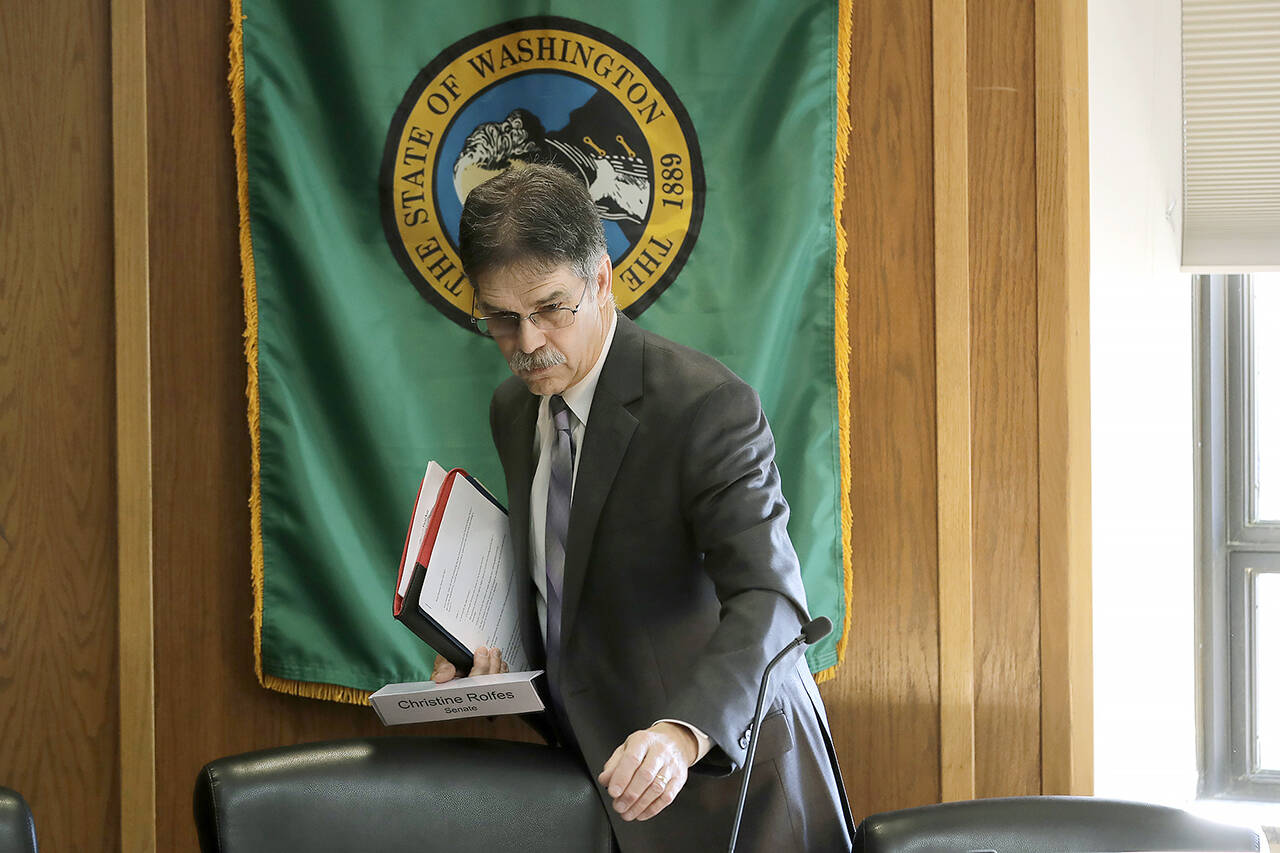OLYMPIA — A state revenue forecast released Wednesday gives Democratic budget writers in the House and Senate more money to spend than anticipated.
A lot more.
Washington’s economy, undeterred by the pandemic or inflation, is expected to generate $1.45 billion more in the current budget than state economist Steve Lerch predicted in his last forecast, in November.
And when that amount is added to Lerch’s projections from the summer, fall and winter, here’s what you get: $61.7 billion in tax collections for the 2021-23 state budget. That’s $5 billion more than when lawmakers adopted the two-year spending plan last April.
That doesn’t include $7.5 billion in reserves. Or $1.3 billion in federal COVID-19 relief left to distribute.
Lerch delivered the exceedingly good news to the bipartisan, bicameral Economic and Revenue Forecast Council Wednesday morning.
Supplemental budgets are due from the House and Senate as early as Monday. The forecast provides the authors with the final piece of financial information required to complete their task.
“It’s a substantial adjustment we’re going to have to make,” said Rep. Timm Ormsby, D-Spokane, chair of the House Appropriations Committee. “I am relieved with this forecast but not exuberant.”
Sen. Christine Rolfes, D-Bainbridge Island, chair of the Senate Ways and Means Committee, said tempered spending is still required.
“I would caution my caucus to be cautious,” she said.
A strong real estate market and retail sales are driving the surge in collections, Lerch said. Personal income and employment are rising, too. Inflation is a factor as well, pushing retail prices higher and resulting in increased collection of sales and business taxes.
With ever growing sums in the general fund for day-to-day operations and reserves, Republicans renewed their calls for tax relief, saying it would be much appreciated in this period of rising inflation.
“It’s raining money, and the Legislature should make it rain for the people of our state in the form of tax relief,” Sen. Lynda Wilson, R-Vancouver, who serves on the forecast council, said in a statement.
“Letting people keep more of their hard-earned dollars would be especially appropriate given the very real concerns about the inflation rate,” she said.
Once the Senate and House release their budget proposals, the two chambers will need to reconcile differences. The legislative session is scheduled to end March 10.
Jerry Cornfield: 360-352-8623; jcornfield@heraldnet.com; Twitter: @dospueblos.
Talk to us
> Give us your news tips.
> Send us a letter to the editor.
> More Herald contact information.

























